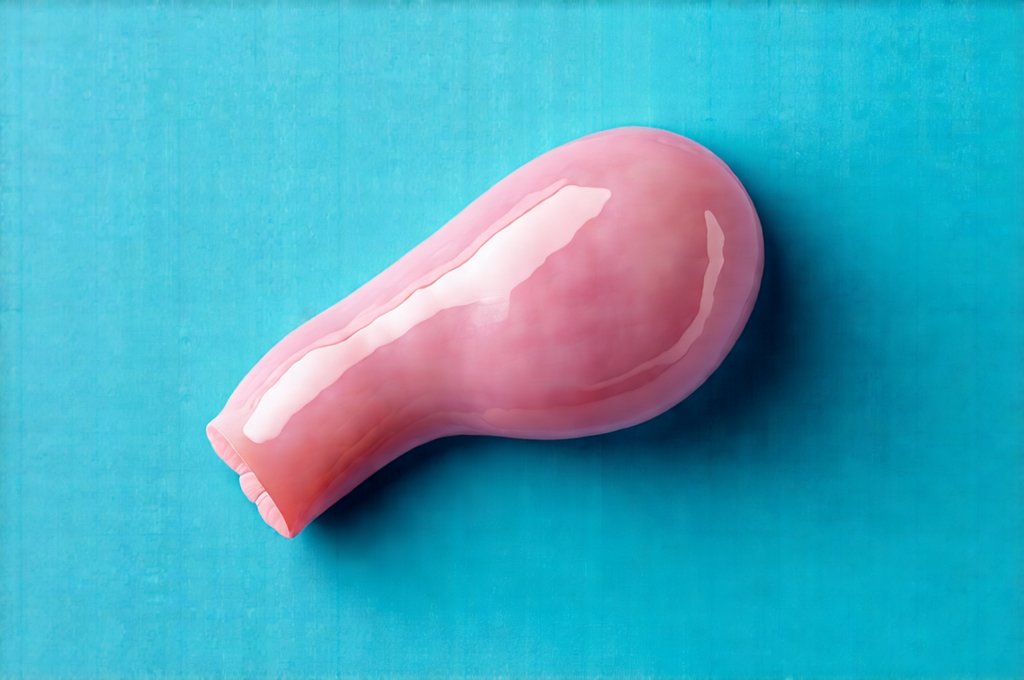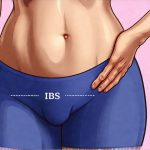Cystitis, commonly understood as a bladder infection, and Irritable Bowel Syndrome (IBS), a chronic gastrointestinal disorder, might seem worlds apart – one focused on urinary health, the other on digestive function. However, an increasing number of individuals report experiencing both conditions concurrently, or even one triggering the other. This raises a fundamental question: is there a genuine link between cystitis and IBS? The answer isn’t straightforward; it’s woven into a complex interplay of physiological factors, neurological pathways, shared risk factors like stress and hormonal changes, and potentially, a disruption in the gut-bladder axis – a relatively new area of research suggesting a bidirectional relationship between these two systems. Ignoring this potential connection can lead to misdiagnosis, incomplete treatment plans, and ongoing discomfort for those affected.
This article will delve into the growing evidence supporting a link between cystitis and IBS, exploring the underlying mechanisms that may explain their co-occurrence. We’ll examine how inflammation, visceral hypersensitivity (an increased sensitivity to pain in internal organs), and neurological connections might play a role. Understanding this relationship is crucial for both patients and healthcare professionals, as it could pave the way for more holistic and effective management strategies tailored to address both conditions simultaneously, rather than treating them as isolated events. It’s important to state upfront that while correlations are increasingly observed, establishing definitive causality remains an ongoing area of study within medical science.
The Gut-Bladder Axis: A Developing Understanding
The concept of a ‘gut-bladder axis’ is relatively new but gaining traction in research circles. For decades, medicine has largely compartmentalized the body – treating organs and systems as distinct entities. However, emerging evidence highlights an intricate network of communication between the gut microbiome, the nervous system, and various organs, including the bladder. This communication happens through several pathways:
- The Nervous System: The vagus nerve, a major cranial nerve, acts as a direct link between the gut and the brain – and indirectly influences bladder function. Signals from the inflamed or dysbiotic gut can travel along the vagus nerve, impacting neurological control of the bladder.
- Inflammation: Chronic inflammation in the gut (common in IBS) doesn’t remain localized. Systemic inflammation can affect the urinary tract, potentially exacerbating cystitis symptoms or increasing susceptibility to infection. Similarly, chronic bladder infections can contribute to systemic inflammatory responses that impact gut health.
- Microbiome Influence: The gut microbiome – the trillions of bacteria residing in our digestive system – plays a significant role in immune regulation and overall health. A disrupted microbiome (dysbiosis) associated with IBS can lead to increased intestinal permeability (“leaky gut”), allowing bacterial products to enter the bloodstream and trigger systemic inflammation, potentially affecting bladder function.
This interconnectedness suggests that disturbances in one area can have ripple effects throughout the body, explaining why individuals often experience symptoms in seemingly unrelated locations. It’s also crucial to understand that this axis isn’t a one-way street; bladder dysfunction and chronic pain can also impact gut motility and microbiome composition, contributing to IBS symptoms.
Shared Risk Factors & Underlying Mechanisms
Beyond the emerging understanding of the gut-bladder axis, several shared risk factors and underlying mechanisms contribute to the frequent co-occurrence of cystitis and IBS. Stress is a major player in both conditions. Chronic stress can weaken the immune system, making individuals more vulnerable to bladder infections. It also significantly exacerbates IBS symptoms through its impact on gut motility, inflammation, and visceral hypersensitivity.
Another common factor is hormonal imbalance, particularly in women. Fluctuations in estrogen levels during menstruation, pregnancy, or menopause can affect both bladder health and gut function. Estrogen deficiency can lead to thinning of the bladder lining, increasing susceptibility to infection, while also contributing to changes in gut microbiome composition. Additionally, visceral hypersensitivity – an increased sensitivity to pain signals from internal organs – is prevalent in both conditions. Individuals with IBS often experience amplified pain responses in the gut, and those with chronic cystitis may exhibit heightened pain perception in the bladder. This means even mild stimuli can trigger significant discomfort. Finally, inflammation serves as a central theme; persistent low-grade inflammation contributes to both the development and exacerbation of symptoms in both conditions. It’s important to consider how lifestyle factors impact this process, such as diet – is there a link between diet and cancer that could play a role here?
The Role of Visceral Hypersensitivity
Visceral hypersensitivity is not merely an amplified pain response but represents a fundamental shift in how the nervous system processes signals from internal organs. In individuals with IBS, the brain may interpret normal gut activity as painful, leading to abdominal discomfort and altered bowel habits. Similarly, in chronic cystitis, even a mildly full bladder can trigger intense urgency and pain. This hypersensitivity isn’t limited to the affected organ; it often extends to other areas of the body, contributing to widespread symptoms.
- Central Sensitization: Prolonged inflammation or persistent irritation of the gut or bladder can lead to central sensitization – a process where the central nervous system (brain and spinal cord) becomes hypersensitive to pain signals. This means even after the initial trigger is removed, the brain continues to amplify pain responses.
- Neuropathic Pain: In some cases, chronic cystitis can lead to neuropathic pain – nerve damage that causes persistent pain even in the absence of inflammation or irritation. This type of pain can be particularly challenging to treat and often requires specialized interventions.
- Psychological Factors: Anxiety and depression are common comorbidities of both IBS and chronic cystitis. These psychological factors can further exacerbate visceral hypersensitivity by influencing pain perception and amplifying stress responses.
Addressing visceral hypersensitivity often requires a multidisciplinary approach that combines pharmacological treatments (e.g., nerve-modulating medications) with non-pharmacological strategies such as cognitive behavioral therapy (CBT), mindfulness, and pelvic floor rehabilitation. If you are concerned about underlying conditions, it’s important to rule out other possibilities like kidney stones and erectile dysfunction.
The Impact of Diet & Lifestyle
Diet plays a crucial role in managing both IBS and cystitis symptoms. For individuals with IBS, certain foods can trigger flare-ups by fermenting in the gut or causing inflammation. Similarly, dietary factors can influence bladder health.
- Hydration: Adequate hydration is essential for both conditions. Drinking sufficient water helps flush out toxins from the urinary tract and promotes regular bowel movements.
- Avoid Irritants: Certain foods and beverages can irritate the bladder and exacerbate cystitis symptoms, including caffeine, alcohol, spicy foods, acidic fruits (citrus), and artificial sweeteners. For IBS sufferers, common triggers include FODMAPs (fermentable oligosaccharides, disaccharides, monosaccharides, and polyols) – found in many everyday foods.
- Anti-Inflammatory Diet: Adopting an anti-inflammatory diet rich in fruits, vegetables, whole grains, and lean protein can help reduce inflammation throughout the body and alleviate symptoms of both conditions. Incorporating probiotics and prebiotics may also support a healthy gut microbiome.
Lifestyle factors such as stress management, regular exercise, and adequate sleep are equally important. Stress reduction techniques like yoga, meditation, or deep breathing exercises can help regulate the nervous system and reduce visceral hypersensitivity. Regular physical activity promotes gut motility and reduces inflammation, while sufficient sleep allows the body to repair and regenerate. A healthy lifestyle is also important for those concerned about a correlation between insomnia and kidney stones.
Future Research & Management Strategies
Currently, research is focused on better understanding the intricacies of the gut-bladder axis and identifying specific biomarkers that could predict an individual’s risk of developing both conditions. This knowledge will be invaluable in developing targeted interventions. The future of management likely lies in a holistic approach:
- Personalized Treatment Plans: Recognizing that each individual’s experience is unique, treatment plans should be tailored to address their specific symptoms and underlying mechanisms.
- Integrated Care: Collaboration between gastroenterologists, urologists, and mental health professionals is essential for providing comprehensive care.
- Microbiome Modulation: Exploring strategies to restore a healthy gut microbiome through diet, probiotics, or fecal microbiota transplantation (FMT) may offer new avenues for treatment.
- Neuromodulation Techniques: Developing more refined neuromodulation techniques could help regulate nerve function and reduce visceral hypersensitivity. Furthermore, it’s important to be aware of the differences between generic and brand-name urology drugs when considering treatment options.
In conclusion, the link between cystitis and IBS is becoming increasingly recognized, supported by a growing body of evidence highlighting shared risk factors, underlying mechanisms, and the emerging concept of the gut-bladder axis. While further research is needed to fully elucidate this relationship, understanding it is crucial for improving diagnosis, treatment, and overall quality of life for individuals affected by these often debilitating conditions. It’s no longer sufficient to treat these as separate entities; a holistic, integrated approach that addresses both physical and psychological factors offers the most promising path forward.





















